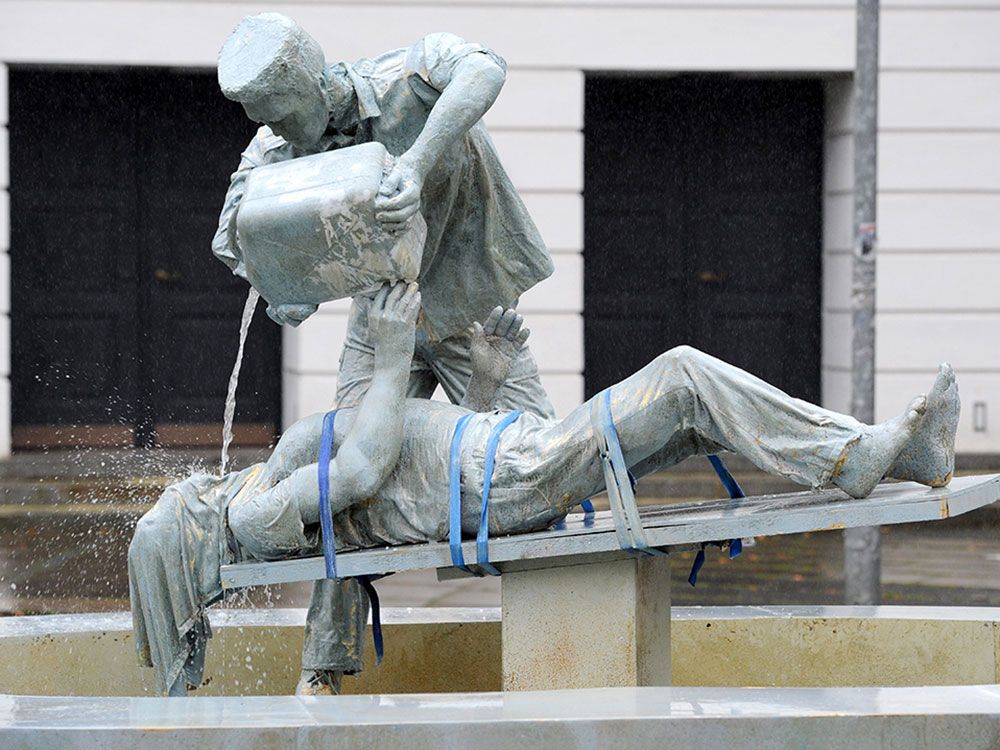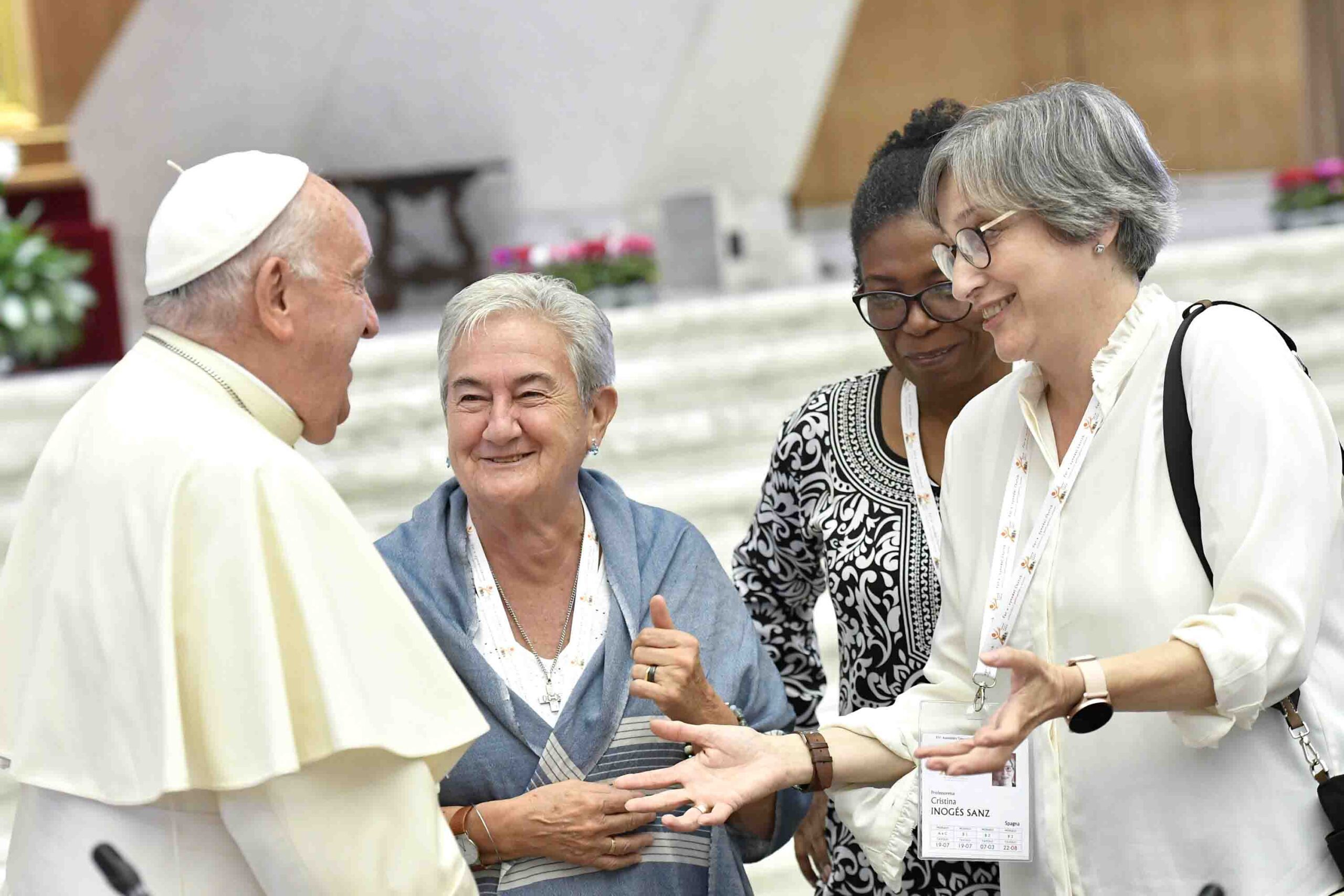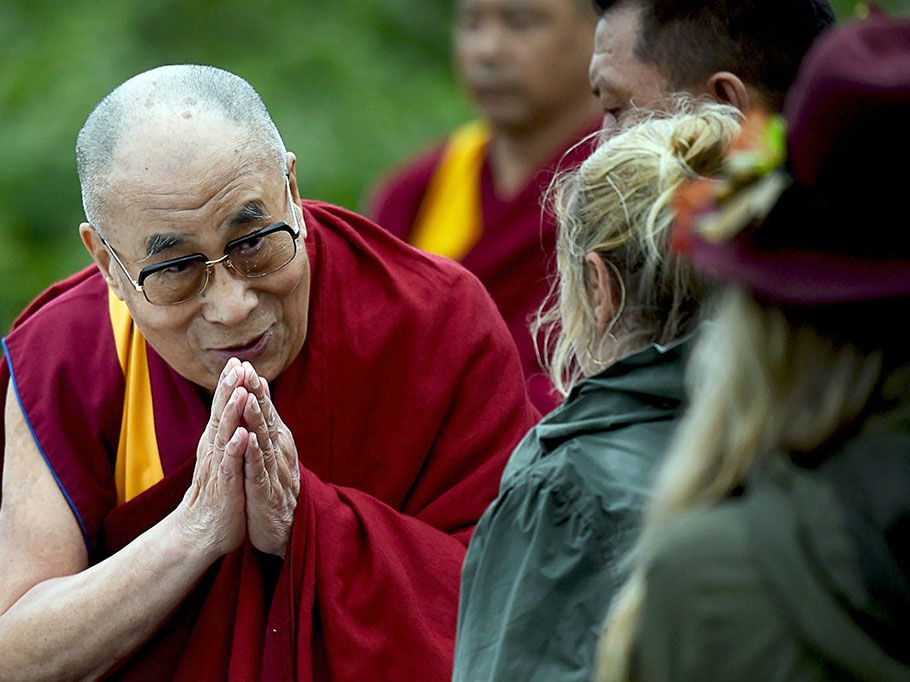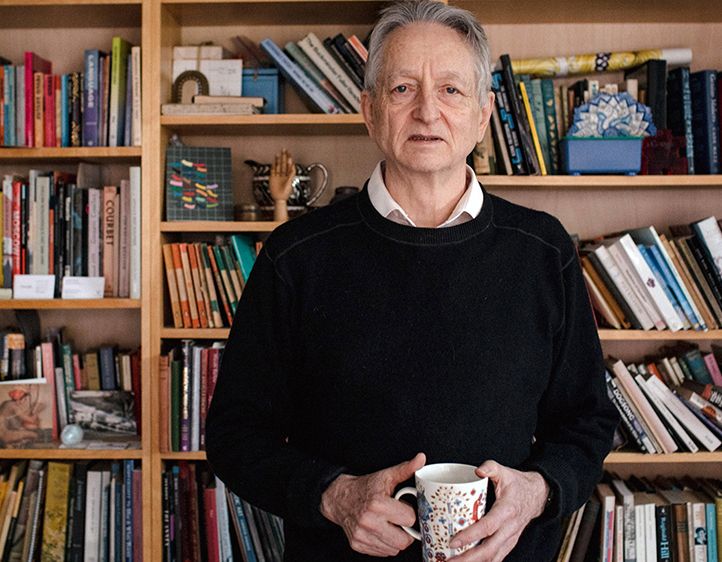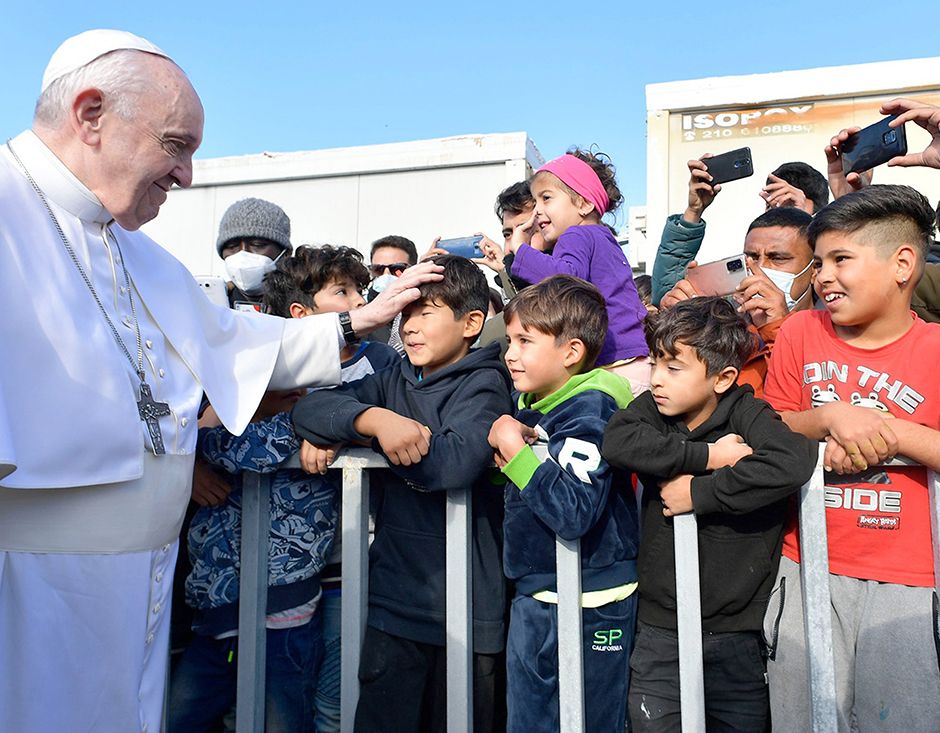Last February, Pope Benedict XVI shocked the world when he suddenly resigned from the papacy. The announcement came in Latin – a language now spoken by no one and understood by a few – during an unrelated meeting. An Italian journalist, who heard the words ran a quick translation and, not believing her own work, retranslated it again. There was no doubt, Pope Benedict had said he would resign in a couple of weeks and leave the Vatican. He did so, mentioning his increasing inability to cope with the work and the speed of changes in the world. He was the first pope to resign after the famous “great refusal” – as Dante Alighieri wrote in the Divina Commedia – of Pope Celestino V in 1294.
The Pope’s resignation opened many discussions about everything: from his right to do so to who the next pope would be. Most media focused on the Pope’s physical weakness or the difficulty of being the leader of a global religion in today’s world. A few, however, realized the real scope of the papacy today. The following dossier is an attempt to have an in–depth look at the most important challenges the Church is facing today.
At the news of the resignation, many started asking if this was a signal for a renewed leadership in the Church. Pope Benedict said that he felt unable to face the speed of changes, the many challenges, the new areas where the Church is asked to intervene; this while his strength was diminishing due to age and ailments. What the Pope was saying is that leadership requires many skills, and the leadership of the Church is even more challenging. The Pope is not only a spiritual leader, but also an administrator and a political figure. To be able to adapt to all these roles is not easy. Besides, today, the world is highly specialized. Each area of knowledge requires competence and constant updating. The Church is also present all over the world, and new questions about Church life rise every day. No one is capable of handling all these instances alone.
Laypeople and bishops
True, the Pope has many people working for him, preparing speeches and evaluating reports. Still, he remains in charge of the overall running of the Church. It was not always like that. Until the 19th. century, the Church was less centralized. Many decisions were delegated to local Churches. Distances and the difficulty of communication made it almost mandatory that the Vatican intervened only on major decisions. Today’s easiness of communication and the ever more centralized role of the Vatican make it harder to follow and resolve all questions.
The problem is not new. Cardinal Martini, then Archbishop of Milan – the world’s largest diocese – realized it long ago and made some proposals. At the Synod of Bishops in 1999, he expressed his “dream” of a council and a form of government of the Catholic Church that would be an expression of collegiality. Regarding the role of the pope, Cardinal Martini expressed the view that he could be helped in his ministry by “a collegial and authoritative sharing of responsibility among all the bishops, a council which could support the pope’s decision–making process.” What the Cardinal was referring to is a permanent council of relevant bishops that could not only advise the pope, but also take on some of the responsibilities he has to shoulder. This would be a major shift in the way Church leadership is exercised.
Today, the Church is run from the Vatican. The work is divided among the different offices of the Roman Curia, each headed by a cardinal. If Martini’s proposal were to be taken into consideration, a new council would have to be approved and placed above the offices of the Curia. Bishops and, possibly, laypeople called to this council would be coming from all over the world and have competence on the different areas of Church life and society. This proposal was a dream in 1999, and still remains as such. Yet, it is interesting that Pope Benedict’s resignation has focused the attention on how a pope can really manage the Church in all its complexity without the sound advice of people who have firsthand experience and the proper competence on different matters.
The question of leadership brings up the issue of lay involvement in running the Church. In a globalized world, where communication plays a large role, the Church needs specialized men and women capable of tackling issues from different points of view. Laypeople do have the qualities and competence needed to support the work of the Church, at local and global level. The challenge will be: how to pick these qualities and integrate them in the leadership of the Catholic Church. One should never forget that laypeople are the greatest majority within the Church but, today, they have the tiniest voice on Church matter.
Yet, the question of leadership goes beyond the integration of lay personnel. It is also a matter of how bishops are chosen. At the moment, the Church follows a well–oiled process of naming candidates and then vetting the most suitable person. This is done through interviews and questionnaires addressed to those who have relevant information. Perhaps, it would be good to review the qualities deemed necessary to become bishops, highlighting the openness to work in network with local pastoral agents and a good formation in theology and biblical studies.
unity in diversity
If leadership is a great challenge that the Catholic Church will face in the years to come, a second realization is no less important. Catholic means universal, and never before the Church has been as universal as now. Today, there are Catholic dioceses everywhere in the planet. There are still many people who did not receive adequate evangelization, there are still many who did not hear Jesus’ teaching. At the same time, we can claim that never before has the Church welcomed so many representatives of different ethnic groups in its fold.
This diversity, however, does not always translate in a multiplicity of ways of living the faith. In a way, the Church is diversified. It is enough to think of the many Easter rites: Catholic communities that have a different way of celebrating the sacraments and have a different set of religious laws regulating their life. Some example of these Churches are the Maronite, the Siro–Malabar, the Armenian, etc. Yet, these local Churches are usually small groups and have limited scope in their outreach. The great majority of the Church belongs to the Latin rite. This is the result of missionary effort, which was mainly the preoccupation of Latin Catholic missionaries.
Missionaries left Europe to bring the Good News around the world, and they brought with them the traditions and uses of their lands. This is why, today, we find in Africa, Oceania, Latin America and Asia local Churches that resemble the mother Churches of Europe. Much has been done in the past years to incarnate the Church in the local culture. There is still much more to do. The challenge that the Church faces is that of intercultural development. Pope Paul VI spoke of unity in diversity, i.e. the need to be united in the faith in Christ, but able to express that same faith in different ways. Fifty years after the Vatican II Council, we are still far from adequately implementing the vision expressed by Pope Paul VI.
Many local Churches promoted changes in the liturgical settings. Liturgy was chosen because it involves all, it is simpler to adapt to and gives a visual sense of change. In reality, liturgy is also a minefield. In fact, it is not so simple to modify the structure of the celebration of sacraments, keeping intact the meaning behind words and action. At the same time, by adding traditional dances and instruments, the liturgy does not automatically become ‘inculturated.’ Real inculturation needs a conscientious process of understanding the faith and re–express it within the parameters of a given culture (see box on p. 17). If liturgy could be the public area where inculturation becomes visible, doctrine should be the most important sector of attention. It is important that the teaching of the Church becomes available in a shape and content understandable by people in their own culture.
The Synods’ role
One of the instruments of doing this is the Synod of Bishops. The synods are a novelty brought about by Vatican II. The whole Church is involved in preparing the synod. I remember that the first synod dedicated to Africa (1994) was preceded by a long work of consultation with small Christian communities, parishes, Catholic institutions throughout the continent. Bishops and lay people participate in the sessions and, later on, a document is drawn to clarify the result of this consultation. So far, synods have been celebrated in Rome, and the Vatican machinery has churned out final messages and the Pope’s documents relating to the themes discussed. The result is the danger of preparing documents that are far from the feelings of the people and have little to say to local communities.
After the publication of the material of the Synod of Bishops dedicated to the Middle East (2010), a journalist asked a bishop what he thought. The bishop answered that the content was fine, yet if one took away the reference to the Middle East and changed them with Oceania, the result would have been an equally good document. In other words, the final document of a synod that was meant to talk to the people of a specific cultural background was, in fact, a document that could be used anywhere. It lacked novelty, it lacked depth, most of all, it was not addressing local issues and not offering solutions with a local flavor.
Perhaps it is now the time to move the synods from Rome to other locations, and allow participants more freedom to interact with reality, to talk with local media, to send back to their communities the work done and listen to their reactions. Only in this way shall we be able to give a real continental flavor to our documents, to our teachings.
Renewal of Canon Law
The same process could be used to renew Canon Law. Canon Law is an important tool in the work of the Church. Many Christians are not aware of it, and perhaps do not realize that the Church has a body of laws of its own. Instead, Canon Law touches their lives in many ways. The way we celebrate and live baptism, marriage, relationships within the Church, all is guided by the Canon Law. A great work to reorganize these canons has been done in the past. The result was a body of laws that place the believers in Jesus Christ at the center of the Church. Moreover, it is needed to adapt laws to local understanding of life.
For instance, we all know that marriage is indissoluble, i.e. it cannot be broken. According to Church law, a marriage is valid if the couple entered into partnership willingly and not under pressure, if they accepted to celebrate the wedding according to Catholic understanding and accepted that their union was for the good of the couple and the procreation of offspring. Marriage is considered valid when it is celebrated according to the ritual approved by the Church and the couple share their love with a sexual intercourse.
This is acceptable in all cultures. However, there could be subtle or substantial differences between a celebration in Europe and one in Africa. Among many ethnic groups in Africa, marriage is not an event linking two people only. Marriage involves the families of the couple, often also the most important friends. Furthermore, the wedding is not the most important happening in the whole process. Marriage is the result of a long journey, the wedding day is only one step of the journey. Is there a way to translate this into the celebration of a Catholic marriage, which would be recognizably Catholic but also African? Many believe there is.
Indeed, there are many local experiments that journey along this line. Local bishops have approved translation of liturgical rites that keep in consideration cultural values. These experiments are still under scrutiny. They would receive a push if Canon Law could be adapted at the continental or regional level, taking into consideration different approaches to life and to spirituality.
A wider evangelization
Another major challenge the Church will face in the years ahead is evangelization. Proclaiming the Gospel is the very reason why the Church is there, in the first place. The Church has always sent missionaries to distant lands to evangelize. Since the 19th. century, a renewed missionary effort allowed the Church to be planted almost everywhere. In Africa, there are still some areas where the Catholic Church has not yet reached the whole population. In Asia, the missionary field is still wider. However, the Church is already present in all countries.
These data should not trick us into believing that the evangelization effort is over. On one hand, while the Church is growing in the South of the world, it is decreasing in the West. So much so that the Church is working on defining new ways of re–evangelizing Europe and the Americas. On the other hand, evangelization is not simply planting the structures of the church everywhere. Proclaiming the Gospel and building parishes is only part of the work of evangelization. Much must be done to challenge the structures of society that do not respond to the criteria of the Gospel.
For instance, the world of finance and the world of politics: are they Christians? Certainly, the world of finance, industrial production, and agriculture responds to God’s command to develop the earth and make it fruitful. However, this is not always done along God’s plan. In the past years, we have seen the greed of international companies which have no qualms to take productive land from indigenous people and use it to produce food for export. There are many industries that pollute, mistreat their workers and make use of children to enhance their profits. There are investors who endeavor to make more money by playing games with the market, movements of shares, forex exchange … without ever producing anything useful for society. Indeed, the financial crisis now gripping the Western world originated in unethical dealings by banks. The Gospel needs to reach these institutions and people, enlighten them on the need for justice and on upholding the rights of people, even before profit.
A similar claim can be done for any human activity, especially for actions in the political arena. Politics, the art of managing communal living, can be a great resource for people, as long as politicians accept their call to serve society. Evangelizing politics is an important duty of all local Churches. Christians are challenged everyday to live a life of commitment, to give a testimony of their faith in the choices they make. This is the best way to open the means for change, and to find the moral resources to accept the challenges that lie ahead of us.





